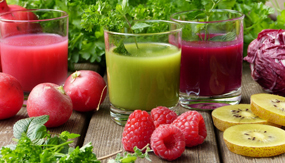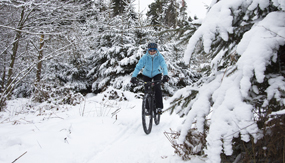
© Pixabay
In the Circwaste project designed to promote circular economy, the pioneering municipalities Ii, Jyväskylä and Rovaniemi have published their road maps to circular economy to guide the resource wisdom of the municipalities in the future. In road map work, it is important to identify local strengths, special characteristics and challenges and to activate the residents of the area.
Road maps to circular economy specify the municipality’s circular economy goals and the practical measures for reaching them. The municipalities invest in measures such as resource efficiency in construction, waste management counselling and reduction of food waste. At its best, this type of work creates new circular business opportunities for the municipality while building new types of partnerships with various operators and promoting the social well-being of the municipal residents as the opportunities of sharing economy increase, for example.
Ii’s zero-waste path to circular economy
In its road map to circular economy, the municipality of Ii focuses on waste management, reuse of materials and a sharing economy. The goal is to raise the recycling rate to 60% by 2030. For this reason, the municipality selected a zero-waste policy and sustainable consumption as the themes of the road map. Ii provides several practical examples of the necessary measures.
In the spring, the municipality of Ii is opening an online service for municipal employees where they can recycle their office furniture. The project aims for both financial and ecological savings. Unused office furniture takes up a great deal of storage space and may cause fire safety hazards. The problem has been solved by setting up a central storage for unused furniture with the municipality’s employment services taking charge of its operations. In addition, the procurement guidelines of Ii will be updated to ensure that all units check the selection of the online service before ordering new furniture. “In the future, we may add lendable items to the recycling site and, for example, open the service for municipal residents,” says Anna Saksio, Communications and Marketing Manager at the Ii-based Micropolis Ltd.
Fruit and vegetable waste is cut back in cooperation with the Oulu-based Circmeal Oy that accepts surplus fruit and vegetables from shops and turns them into smoothies offered to the 600 or so pupils of the Hamina school in Ii with their lunch. The catering services of Ii cooperate to reduce their biowaste fees and volumes and overall waste, improve the accuracy of budgeting and save logistics costs. “Due to the excellent results of the experiment, we plan to expand these catering operations to the healthcare and nursing service customers of the municipality as well,” says Saksio.
Jyväskylä invests in smart technology

© Unsplash
The City of Jyväskylä highlights the wise use of resources as one of the spearheading projects in its strategy and has integrated it as part of the overall administration of the municipality. A resource wisdom programme was prepared in cooperation with various operators in the area to guide the work and define the necessary steps for approaching the goals. Resource-wise Jyväskylä 2040 covers the key programmes, road maps and commitments related to resource wisdom. The programme was also designed to rationalise the operations, coordinate resource wisdom work and simplify monitoring and reporting. The programme is divided into seven themes, each with its own vision, measures and goals. The themes are:
- energy,
- transport and urban structure,
- consumption and material cycles,
- food production and consumption,
- natural waters and water consumption,
- biodiversity and recreational use, and
- sensible Jyväskylä resident.
“The City Council has approved the programme at the goal level; many of the actions included in the necessary measures to guide operations require separate decision-making processes. The strength of our road map lies in its diversity and multidimensionality; it practically covers all the activities in the municipal organisation,” says Pirkko Melville, Research and Development Manager at the City of Jyväskylä.
A great deal of smart technology will be used in Jyväskylä to improve resource efficiency. The road map includes several projects for developing digital services, such as using data modelling to control landmasses and promoting smart electricity, heat and water solutions in the city area.
The goal is to have smart transport services that enable efficient travel chains for municipal residents. Solutions for this are sought through using open data and increasing mobile services in public transport. In addition, Jyväskylä is promoting digital solutions in education and other operations, adopting new remote and digital services to reduce the need for mobility, and overall ensuring that the telecommunications and mobile phone network enable fast digital services.
In addition to smart solutions, Melville lists successes such as the creation of a local biogas ecosystem and a minor surplus lunch experiment which resulted in a snowball effect for utilising food waste in both public and private kitchens. “Next, we will move on to the systematic implementation of the measures in the road map and monitoring of their effectiveness,” says Melville.
Rovaniemi as pioneer of arctic circular economy

© Pixabay
The road map of Rovaniemi includes five focus areas: sustainable food system and cycle of nutrients, forest-based loops, technical loops, transport and logistics as well as joint actions. “We have created clear, practical goals that are easy to lean on and use as a basis for building future development. Some of these goals can be adopted by any municipality without even having to know much about circular economy,” says Erkki Lehtoniemi, head of Environmental Supervision at the City of Rovaniemi.
In Rovaniemi, the special characteristics of the area as a Nordic tourist destination are taken into consideration in the road map work. For example, the goals include increasing the practical use of snow in an innovative manner to increase the distinctiveness of the area. Rovaniemi is also aiming to become a pioneer in local snow management solutions. Low-emission traffic solutions are promoted through means such as early-morning snow clearance of bicycle paths to support winter cycling by including the requirement in city contracts.
Rovaniemi’s strengths include the arctic cuisine and a profile as the display window of tourism. One of the goals in the road map is to ensure that Rovaniemi residents are proud of the local cuisine and that local food is one of the city’s top attractions. This is promoted by, for example, increasing the appreciation of locally grown food, roach and pike. The recognition of the arctic cuisine is increased in cooperation with tourism operators and tourism concepts combining nature and culinary experiences.
In Rovaniemi, the road map work has received wide approval and positive attitudes throughout the organisation. “Now that the City Board has approved the road map, the next step is to set up a steering group and translate the road map into practical measures. The road map will also be supplemented annually as goals are reached and new ones are set,” says Lehtoniemi.
Synergistic benefits for the road map work of Circwaste municipalities
The ten pioneering municipalities in the Circwaste project – Ii, Jyväskylä, Kuopio, Lahti, Lappeenranta, Porvoo, Riihimäki, Rovaniemi, Turku and Vantaa – are committed to promote circular economy ambitiously and tangibly. As the first municipal network, they plan to realise the goals of the National Waste Plan by recycling at least 55% of municipal waste, reusing at least 70% of construction and demolition waste and cutting back waste volumes to the level of the year 2000 by 2020.
“In these road maps, the focus areas are carefully selected and represent the deepest core of circular economy. It is also important to divide the responsibility of different measures to various operators to ensure tangible results,” says Researcher Hanna Eskelinen from the Finnish Environment Institute.
“What’s particularly enjoyable about road maps is the indicators recorded in them to measure effectiveness, such as records of achieved savings in euros and the reuse rates of materials. Measuring is an important tool for monitoring and, thus, managing the change,” says Eskelinen.
The focus areas of Sitra’s national road map have been partially used in the road maps of the pioneering municipalities, and the road maps implement the National Waste Plan (VALTSU). The road map work of the municipalities has aimed to find synergistic benefits from the municipalities’ existing projects promoting circular economy and resource wisdom, such as FISU (Finnish Sustainable Communities), HINKU (Carbon Neutral Municipalities network) and CANEMURE (Towards Carbon Neutral Municipalities and Regions).
In 2019, the road maps of three pioneering Circwaste municipalities – Porvoo, Riihimäki and Vantaa – were published. In Kuopio, Lahti and Turku, the work is ongoing and the road maps will be published between 2020 and 2021.
See the road maps of the pioneering municipalities (in Finnish).
More information
- Communications and Marketing Manager Anna Saksio, Micropolis Ltd. tel. +358 40 5353 362, firstname.lastname@micropolis.fi
- Research and Development Manager Pirkko Melville, the City of Jyväskylä, tel. +358 14 266 1593, firstname.lastname@jyvaskyla.fi
- Head of Environmental Supervision Erkki Lehtoniemi, the City of Rovaniemi, tel. +358 400 295 595, firstname.lastname@rovaniemi.fi
- Researcher Hanna Eskelinen, Finnish Environment Institute (SYKE), tel. +358 295 251 592, firstname.lastname@ymparisto.fi